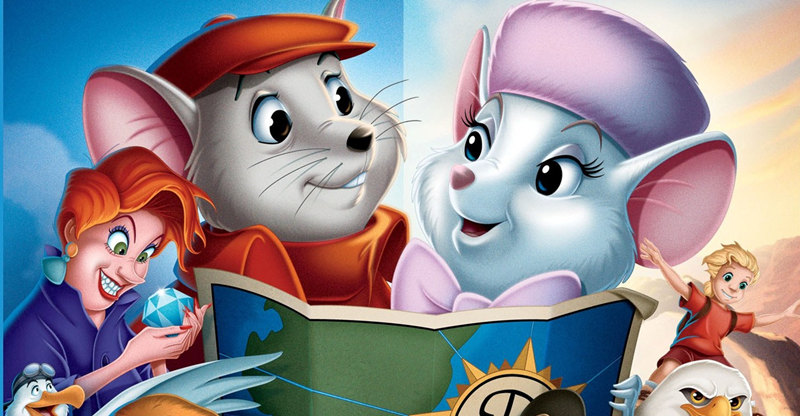If you have the ability to walk upright or even just fog a mirror, it should be painfully apparent that the world has an obsession with celebrity. Or perhaps more accurately, the possibility of being a celebrity. One glance at the avalanche of so-called “reality” shows should be proof of that. The documentary “Starsuckers” explores the world of that celebrity fixation and what the filmmakers refer to as its “toxic” results.
Director Chris Atkins’ documentary from 2007, “Taking Liberties,” achieved some notoriety for its examination of the British governments treatment of civil rights in the wake of terrorism. Here, he takes on a subject with a great deal more comic potential, and one that is ripe for intelligent dissecting.
The film provides a measure of both, though not in the amounts one might have hoped for. Atkins frames his material with the device of an unseen pitchman “pulling back the curtain” on contemporary media. A pair of magic hands work corporate-themed card tricks as narration introduces us to each of the five steps of the big business grand design. This is a pedantic and irritating strategy that threatens to drag the rest of the film down with its great-and-powerful tone and smugly calibrated revelations. Ralph Nader meets David Blaine in the booth for All Things Considered.
This being a British feature, much attention is paid to the vicious, fueled-by-the-blood-of-celebrities machine that is the British tabloid press. One entire chapter is spent on these rags, including a secretly filmed series of interviews with tabloid reporters, where phony celebrity medical records are offered for sale and they bite without hesitation, despite this being against the law.
Given the recent scandals involving phone-hacking and the “Red Tops” (so called for the red banners that run at the top of their front pages), this is timely stuff, and a righteous indignation is well-earned. Their role in callously victimizing young women whom they pay for kiss-and-tell stories about sex and partying with celebs is also profiled earnestly. Linked to this is a strong, well-reasoned commentary about the decline of the press and the perversion of its mission. Budget cuts have limited the number of people who can fact-check, so the press has more and more taken to accepting PR articles on faith, and publishing unsubstantiated rumor as truth.
The role of advertising and PR, especially towards the young, fills another chapter. Some intriguing and convincing arguments by academics are presented about the damage being done to children by advertising and the media-driven cult of hope, where children are taught that anyone can be a star if they just believe enough. The idea is posed that we have become a culture where celebrity is a goal and end to itself, not the earned result of any worthy achievement. A meaningful idea surely, but the film distracts from its own message with a barrage of ADD-worthy film and TV clips, and an editing style of rapid cuts and small segments that robs the film of any momentum. And oh look, there’s those annoying hands again…
Atkins provides a through-line in each of the chapters with the story of Riyann, a six-year-old Las Vegas lad with dreams of fame and too much jewelry. The film follows him through auditions, agent pitches, photo shoots and public appearances, all with the blessing and full support of his parents. We are clearly supposed to sympathize with him. The filmmakers use him as the embodiment of the rapacious exploitation of youth by corporate interests, but there isn’t enough on screen to actually support that thought. Instead, I just wanted to grab his parents and shake them until they cried.
The film makes an explicit case that we are all just helpless dupes, programmed by a questionable evolutionary theory that provides us with a need for celebrity or its reflected glow, and that we as a race now lack the intelligence or dignity to resist the siren call of corporate-sponsored notoriety. This is a bold and rather cruel assertion, and the film does not really build a solid case in its favor, in either its science or its anecdotal evidence.
Video:
“Starsuckers” is presented in 16:9 FHA. Not surprisingly given its low-tech surveillance camera methods, the digital print is only adequate.
Audio:
The soundtrack is presented in stereo and Dolby digital.
Extras:
One of those rare times where the extras package is occasionally superior to the feature presentation.
–a promotional trailer
–several deleted scenes, including: an interesting interview with Luke Yankee, the son of actress Eileen Heckart (whose name is misspelled in the title card); footage and celebrity interviews at a Toyota fundraiser; and interviews with unsuspecting film stars, where the filmmakers try to draw out their thoughts on fame and the celebrity machine without getting kicked off the red carpet
–a fascinating making-of documentary, with Atkins and the producers speaking about the film’s guerilla methods and philosophy, their own addiction to their brief slice of fame through “Taking Liberties” and their jaundiced take on the Cannes film festival. I found this doc to really flesh out some of the ideas not fully realized in the film—it works best as a companion piece, not just an extra.
Parting thoughts:
Yes, celebrity is a bitch goddess; yes, there are lots of creeps in its ranks, like Kev the paparazzi photographer, or the astonishingly blunt and honest PR flak Dave Read; yes, lots of children want to be famous because of the depictions of fame in the media. But to say that its all the media’s fault is a cop-out. This occasionally insightful, but just as often irritating documentary, could have used another portion of humor in place of the narrator, and a more carefully documented thesis.


